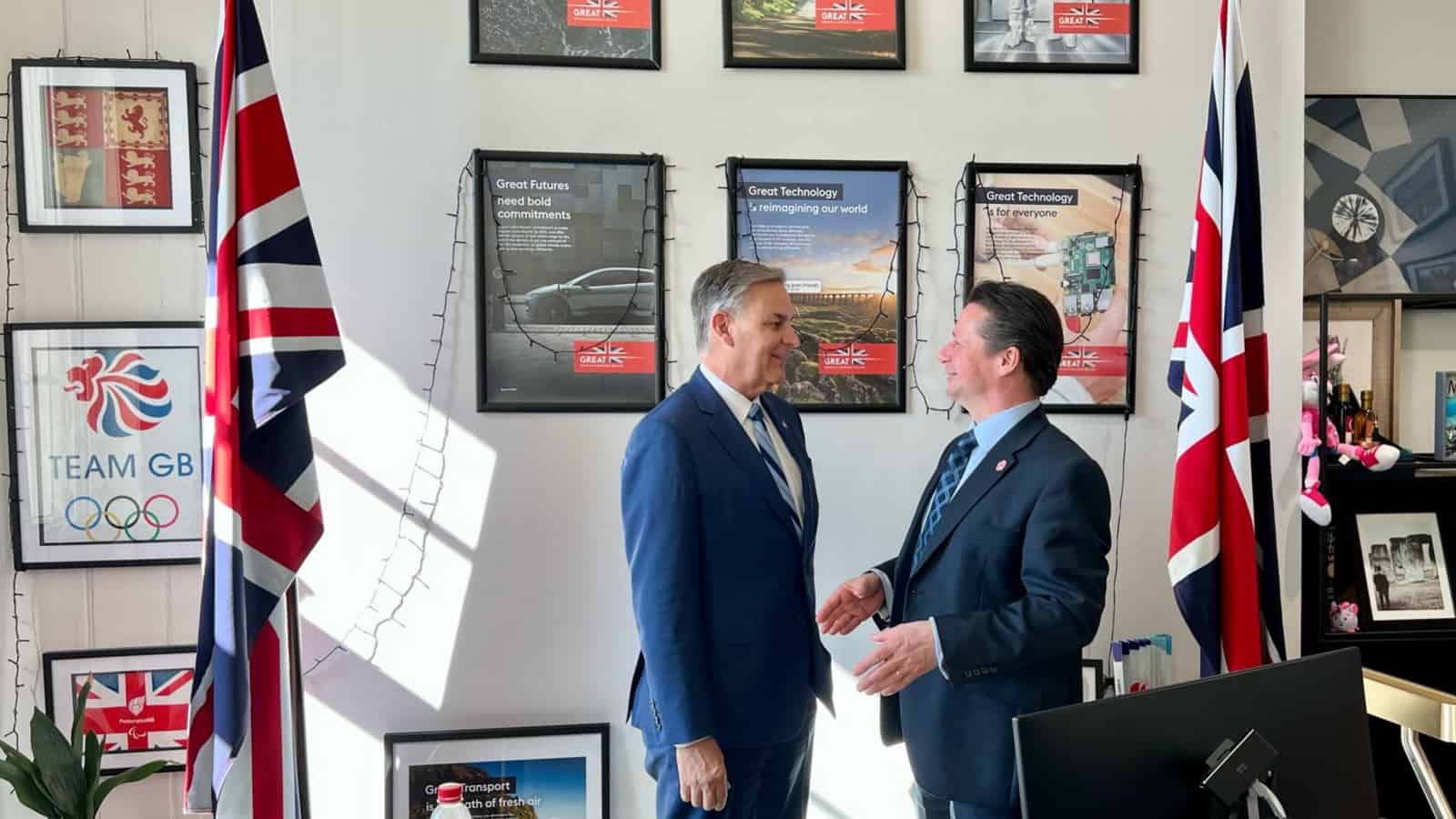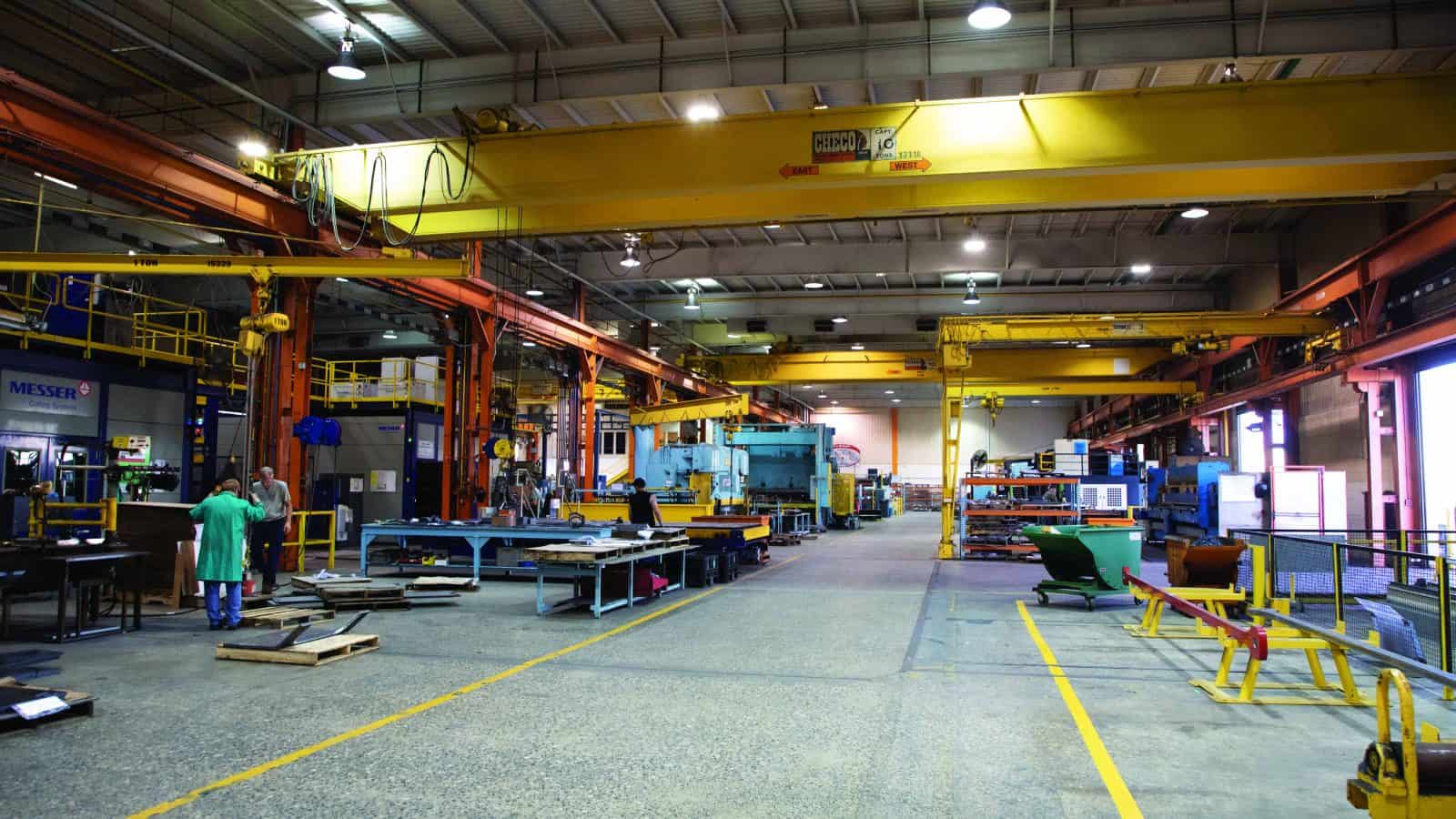The NAM Revives High-Level U.S.–U.K. Talks

The NAM’s Competing to Win Tour in Europe moved on to London early this week, highlighting the imperative to shore up the U.S.–U.K. relationship—and to urgently address other barriers, like permitting reform and workforce shortages, to enable the U.S. to help allies in the face of Russian aggression and other geopolitical threats.
The issue: Russia’s unprovoked war in Ukraine, the aftermath of the worldwide pandemic and China’s quest for global leadership create a new urgency for expanded trade opportunities between democratic countries.
- The U.S. and the U.K. must work together to shore up supply chains, enhance energy security, boost resiliency and create growth, as NAM President and CEO Jay Timmons emphasized.
The details: Timmons crisscrossed London on Monday and Tuesday, promoting the manufacturing industry and reinforcing its priorities with senior government ministers and officials, including:
- Nigel Huddleston MP, the U.K. minister of state for international trade
- Jonathan Reynolds, Labour Party shadow business secretary (one of the architects of the Labour Party’s industrial plan)
- Jane Hartley, U.S. Ambassador to the Court of St. James’s
Support at home: During his visit, Timmons did an interview with CNN International to discuss the NAM’s new Outlook survey, which found that 77% of manufacturers want to see more trade agreements with Europe.
Making industry connections: At the NAM’s sister organization Make UK, Timmons joined a roundtable with CEO Stephen Phipson and addressed some of Britain’s leading manufacturing companies.
- He spoke about how the U.S. and the U.K. can unlock new trading opportunities going forward and bolster democracy by strengthening commerce.
- The two groups also reaffirmed their commitment to share market intelligence, data and policy work, as well as to facilitate visits for economic delegations promoting trade, investment and commercial opportunities.
- They also voiced their continued and mutual support of the Ukrainian people and of the democratic institutions in their own countries.
What they said: “The ties between the UK and United States go back a long way and we have significant political, economic and trade connections,” said Phipson. “Relations with the US are vital and its market is the second most important for UK goods. In a post-Brexit world, it is likely to assume ever greater importance as part of our efforts to boost global trade.”
- “As world events have made abundantly clear, strengthening democracy, the free enterprise system and strategic alliances in our countries and around the world is essential to our future and the fight against tyranny,” said Timmons. “As the U.S. and the U.K. take steps to build a stronger, more open and secure economic relationship, the NAM urges our leaders to move toward a new U.S.–U.K. market-opening trade agreement that includes strong, clear and enforceable outcomes.”
Meeting manufacturers: In addition, Timmons met with manufacturers that have operations or pending operations in both the U.K. and the U.S. Energy security and regulatory certainty, as well as the worker shortage in the industry, also took center stage in these discussions.
Bottom line: “The tour’s time in London matters to manufacturers in the United States because it strengthens the ‘special relationship’ between the U.S. and the U.K. and boosts the prospects for enhanced cross-Atlantic trade, supporting manufacturing jobs in both countries,” said Ken Monahan, NAM Vice President of International
